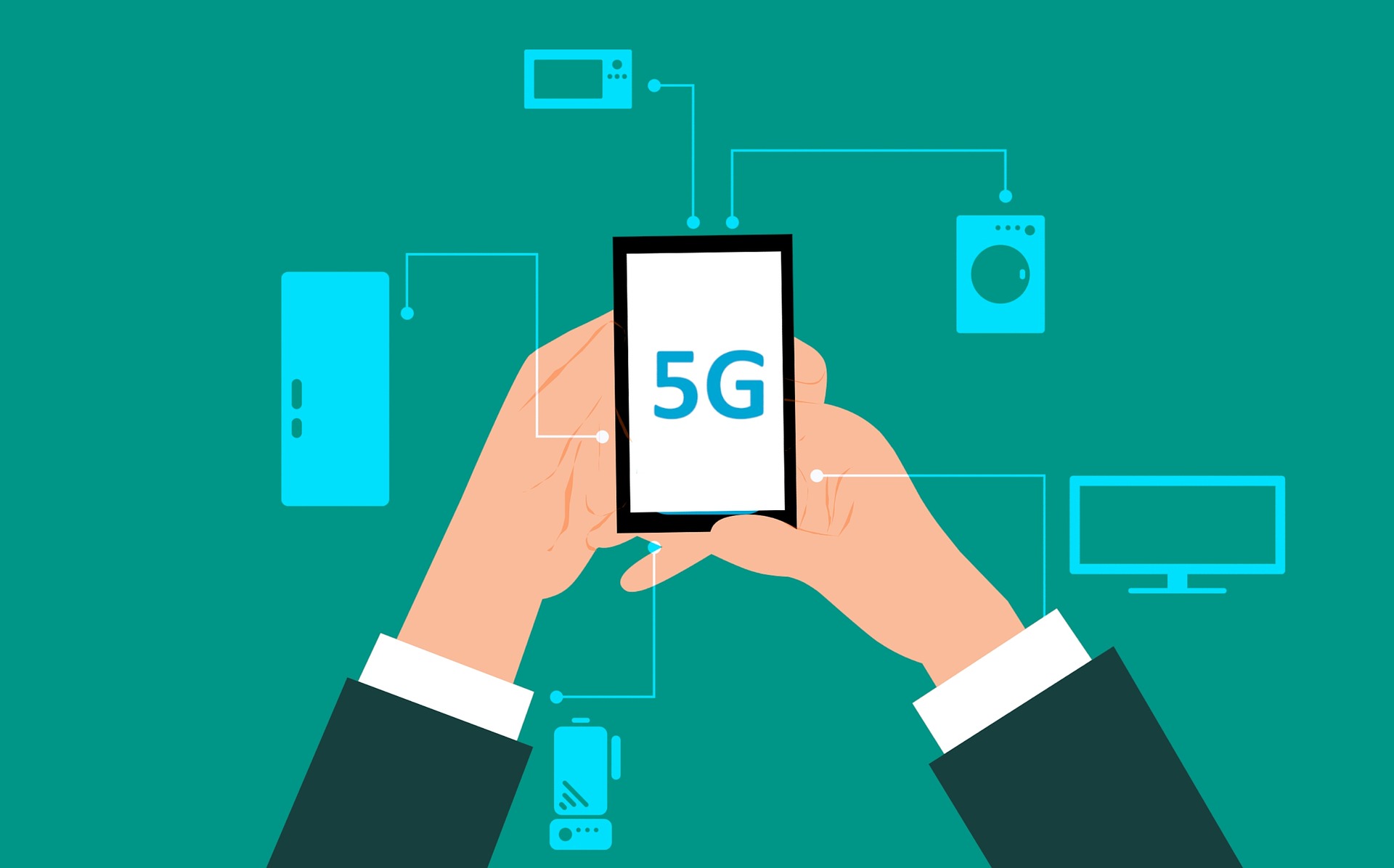The telecom industry kicked 2019 off by continuing the highly publicized debate over the opportunities, or lack thereof, that 5G presents modern day society. The technology’s promise to deliver higher bandwidth, lower latency, reduced packet loss, and overall increased system capacity than its 4G and 3G predecessors, is still generating both high expectations and severe skepticism.
With the gradual emergence of autonomous vehicles, smart cities, and all things IoT, advocates and hopeful early adopters believe that 5G technology will support innovation and transform the world as we know it. Conversely, critics attest that the so called “next generation” is overly-hyped and still faces a magnitude of serious hurdles before it can prove revolutionary.
To weigh in on the debate, I asked a panel of diverse industry experts to comment on the following question:
What do you think of 5G, is it worth all the hype?
___________________
Catherine McNally
Internet Specialist, HighSpeedInternet.com
In 2016, the Federal Communications Commission (FCC) found that 92.3% of Americans have access to speeds of 25 Mbps or more—but more than 24 million Americans don’t have access to internet speeds that meet 25 Mbps. Because 5G nodes don’t necessarily require as much infrastructure as a cell tower, they can be used in areas lacking wireless coverage. This will extend wireless speeds of at least 10 Mbps (the FCC’s current definition of mobile LTE broadband) to rural areas lacking in Internet options. If done right, 5G will help level the current rural-urban divide when it comes to Internet speeds, so I think the hype is warranted.
James Graham
CEO and Co-Founder, Community Phone
@wittedhaddock, @communityphone
[5G is] definitely not worth the hype for any end-user or individual human. Certain IoT or self-driving car applications are different. Notwithstanding all of the industry claims and promises for how 5G will fix all woes, the one piece that is never considered is how app developers consistently re-write apps to utilize all available bandwidth. So even should all the tenuous bandwidth promises of 5G [be real], app developers — if history is any guide — will stuff themselves with 3rd party frameworks and services that consume your newfound 5G connection. So, while one might be able to theoretically receive twice as much data per second, what matters way more is how your app is developed. Two years ago, websites became the size of DOOM. That’s only increasing.
Jim Poole
Vice President of Business Development, Equinix
The real value of 5G and the reason we’re seeing such heavy investments in building these networks is to help businesses and consumers unlock new, currently unattainable capabilities. 5G networks are expected to far surpass 4G networks in optimizing applications such as IoT, AI, next-generation high definition video and fixed wireless access. 5G’s extremely fast bandwidth and ultra-low latency makes mission-critical control possible, opening the door for new applications that demand absolute reliability, such as health care, energy or autonomous transportations.
Vassilis Seferidis
CEO, Zeetta Networks
@ZeettaNetworks
As a society we tend to over-hype technology. For the person-in-the-street 5G brings you little new functionality compared to a well-designed, uncongested 4G network. It will still let you watch Netflix. What 5G will also do is let you watch Netflix in high-definition, on a crowded train, moving at speed where everyone else on the train is also watching Netflix. Nothing new, but certainly a better experience.
Beyond the day-to-day changes, 5G is a network of networks and has the ability to bridge the digital divide by connecting the unconnected. If all you want to do is watch more box-sets 5G isn’t worth the hype. If you want to make the world a better place 5G may be the technology to help you do it.
Amy Smith
Technology Analyst, FitSmallBusiness.com
@FitSmallBiz
As giddy as I always get for new tech, I also remind myself that first-generation anything should be met with skepticism. The 5G jump promises faster download speeds, lower latency, and all-around better experiences with our smartphones; basically, it’s a bigger pipe for data transfer. However, coverage won’t be widespread initially, and depending on where you are, you might not be able to take full advantage of the network or that expensive new phone. Plus, I’d expect the data caps by wireless services to be prohibitive. The next generation in wireless phone tech is exciting, but I’ll wait a year before I personally invest in anything to make sure the networks are stable (and in my area), the bugs and glitches in new phones (and batteries) are worked out, and that there’s proof that 5G really will be faster than 4G LTE.
Zouhair Sebati
Lead Account Partner, IBM Global Business Services
While attracting a lot of hype about how it will disrupt everything — much like most emerging technologies—5G is different. The predicted transformational benefits are real, but it is still an uncharted landscape. Businesses need to prepare for plenty of first-generation challenges.
A recent report indicates that 60% of organizations surveyed plan to deploy 5G by 2020, with clear expectations for 5G use cases, but this demand is far ahead of what communication service providers (CSPs) can deliver. CSPs are initially focused on consumer broadband services. To businesses, 5G is more than just a better mobile network – it will improve the networks of companies in every industry, allowing them to take greater advantage of transformative technologies, such as AI, IoT, and machine-to-machine communication. From autonomous vehicles to smart cities and healthcare, companies expect 5G to improve how they collect, manage and use data, enabling better customer service, increased operational efficiency, and greater employee productivity. How well an organization plans for and implements 5G will determine the level of transformational impact on its business. This means preparing now to implement this next wave.
Skyler Ditchfield
Co-Founder and CEO, GeoLinks
@GeoLinks_USA | @SkylerJesseD
As it currently stands, 5G is not worth the hype at all. There are still countless issues with the technology, such as your hand or body blocking the signal, and deployment timeframes continue to be pushed further out. In reality, 4G provides us with enough speed and low latency to support all of today’s modern applications. Unless an area is overly saturated, such as urban markets, the general Public will virtually notice no difference between 4G and 5G. Moreover, 5G has a strong potential to hinder progress in connecting rural America. Why? Expansion dollars will likely be focused on building out new 5G infrastructure causing less and less capital being dedicated to closing the 4G gaps in rural and suburban America. I can tell you personally in my town of around 110k (Ventura) there are countless 4G dead spots. In fact, I even run into dead zones throughout Los Angeles and Beverly hills on Verizon. All in all, instead of focusing on the overly-hyped marketing of 5G, our energy and dollars should instead focus on densifying 4G networks and adopting a hybrid-network approach to closing the digital divide.
Chris Nicoll
Principal Analyst Wireless, ACG Research
@CANicoll
Despite promises and early launches by Verizon and T-Mobile in the US, and other operators around the world, the main differing features of 5G – namely very low latency in support of VR-type applications and remote robotic control and ‘network slicing’ to allow networks to be virtually separated into virtual private networks – will not come for at least another 2 to 4 years.
[Furthermore,] the much-touted use of ‘sub-6GHz’ and mmWave spectrum requires 2 to 5x the densification of today’s existing mobile networks. There are some technologies that can mitigate this densification, but as the FCC in the US is pursuing, this requires massive numbers of small cells, and current zoning rules are localized which slows down deployment. This argument also misses the high costs of running fiber to all of these small cells and the only solution is wireless backhaul which requires more spectrum. [So,] 5G will eventually live up to the hype, but for now, consumers should be patient and not fall for the shiny object dangling in front of them.
Michael Bancroft
Co-host, Globalive Media’s “Beyond Innovation”
There’s plenty of hype about incoming 5G networks, and they are definitely worth getting excited about – not only because it will deliver dramatically faster speeds to your smartphone (though that is a nice bonus!), but also because it will unleash the potential of the Internet-of-Things. 5G delivers gigabit speeds at very low latency, making it possible to connect millions of devices simultaneously and constantly, without interruption. Exciting new technologies, such as augmented reality experiences and autonomous vehicles, [will] become possible by laying the 5G groundwork. In the bigger picture, by hooking up IoT sensors to everything from traffic lights, to factory robots, to vending machines, we can gather incredibly granular data on nearly every interaction that occurs, and all of this data can be processed and analyzed by AI algorithms to identify ways to make services vastly more efficient and cost-effective.
However, where the 5G hype gets a little outlandish is in how quickly we’ll see the improved capabilities of 5G come to market. It will take some time to scale these networks and develop the IoT applications that will run on them, and that’s something consumers need to keep in mind.


